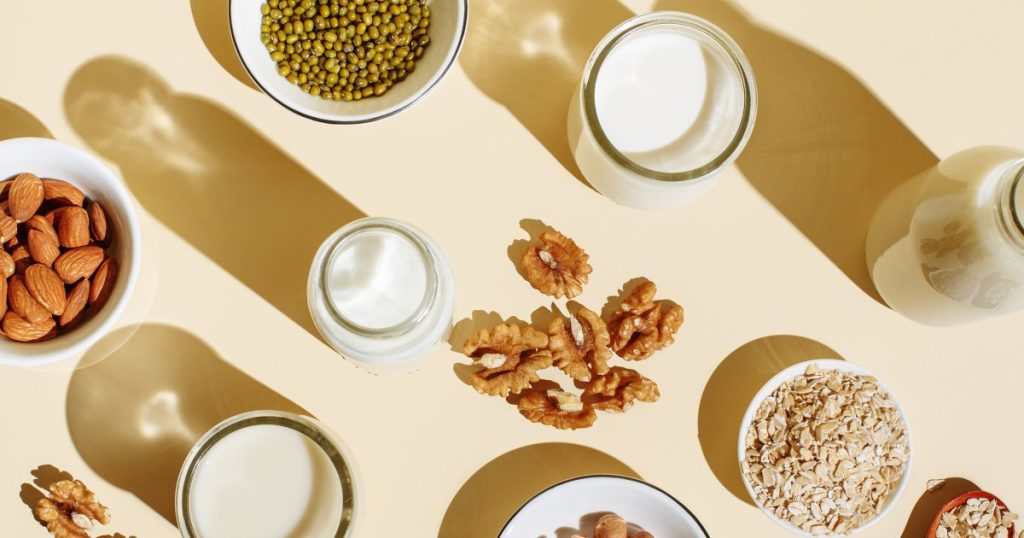The milk section of the supermarket can be overwhelming with so many options available. The average American consumes a significant amount of milk products each year, with three billion dollars being spent on milk substitutes in the United States in 2020. This number is expected to rise to almost four billion by 2025. With milk playing a key role in the American diet, it’s important to choose a healthy option. To help consumers navigate the dairy aisle, the healthiest milk options are highlighted, including cow’s milk, soy milk, pea milk, almond milk, and hemp milk.
Cow’s milk is a top choice in terms of nutrition, with one 8-ounce glass containing 8 grams of protein and 13 essential vitamins and minerals. It is high in calcium and vitamin D, which are important for bone health. Cow’s milk comes in different varieties such as skim, 1%, 2%, and whole, with varying fat and calorie content. However, cow’s milk contains lactose, a sugar that some people may have trouble digesting. For those with lactose intolerance, non-dairy milk options may be a better choice.
Soy milk is considered one of the healthiest non-dairy milk options, with similar protein content to cow’s milk. It is often fortified with calcium and vitamin D and can be a good alternative for those with nut or dairy allergies. Pea milk is another nutritious option, offering 8 grams of protein per 8-ounce serving and similar nutritional benefits to soy milk. Despite its creamy texture, some may find the faint pea-like taste off-putting.
Almond milk is low in calories and has a slightly nutty flavor. While it lacks protein, it is often fortified with vitamin D and calcium. Hemp milk, derived from hemp seeds rich in plant-based omega-3 fatty acids, is beneficial for heart health and inflammation. It is higher in fat content but offers a substantial amount of calcium. Oat milk, on the other hand, is creamier than many plant-based milks but higher in calories and carbohydrates. It may not be the healthiest option compared to other milk alternatives.
Despite the plethora of milk options available, navigating the dairy aisle can be simplified by choosing nutritious options such as cow’s milk, soy milk, pea milk, almond milk, hemp milk, and oat milk. Each type of milk offers different nutritional benefits, catering to various dietary needs and preferences. By understanding the differences between these milk varieties, consumers can make informed choices that support their overall health and well-being.


